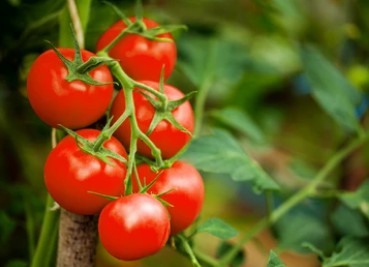
Monellin was discovered in 1969 in the fruit of the West African shrub Dioscoreophyllum cumminsii. Monellin has a molecular weight of 10,700 Da and consists of two non-covalently bound polypeptide chains, an A chain of 44 amino acid residues, and a B chain of 50 amino acid residues. Monellin is considered sweet by humans and some primates, with a slow sweetness and lingering aftertaste. It is about 100,000 times sweeter than sugar on a mole basis and thousands of times sweeter on a weight basis. Because of this superior sweetness property, monellin is favored by many botanists. More and more researchers are trying to develop monellin transgenic plants to breed sweeter fruits or vegetables.
Lifeasible is committed to providing customers with satisfactory transgenic plant development solutions as a professional plant biotechnology company. Our rich experience and professional technical platform offer a comprehensive, one-stop monellin transgenic plant development service.
We have many successful cases and have developed monellin transgenic plants for many customers. The single-chain monellin gene encodes two polypeptide chains connected by a hinge sequence. We can clone the gene encoding monellin into vectors containing constitutive and target plant maturation-specific promoters. Then use technical methods such as Agrobacterium-mediated or plant virus-mediated to transfer it into the target plant. After monellin has been successfully transferred, we will use a series of biological techniques to verify. And provide monellin analysis services, including a variety of optional items.
| Service Step | Service Content |
| Plant material and bacterial strain preparation | First, determine the plants to be transgenic, which are provided by the customer or purchased by the company for you. Materials such as Escherichia coli DH5α or BL21, vectors, and Agrobacterium strains should be prepared. |
| Expression and purification of recombinant monellin | The 294 bp monellin gene is synthesized, cloned into a vector, and then transformed into an Escherichia coli BL-21DE3 strain. A kanamycin screen will be performed on the successfully transformed strain, the monellin secreted by the strain will be purified, and the sweetness of the monellin will be determined. |
| Binary vector construction, plant transformation, and regeneration of T0 monellin transgenic plants | After successfully constructing the vector, it is transformed into plant explants using Agrobacterium, which will germinate in an antibiotic selection medium. The regenerated T0 shoots will be transferred to the half-MS rooting medium for further culture. |
| Evaluation of monellin transgenic plants (optional) | PCR identification is a necessary identification method for transgenic plants. In addition, our optional analysis services include RT-PCR analysis, immunoblot analysis, sensory analysis of monellin, functional analysis of transgenic plants, etc. |
Technical means: Agrobacterium-mediated transformation
Agrobacterium tumefaciens strains: EHA105, LBA4404, GV3101, etc.
Vectors: pLD vector, pETDUET, pHPMS, pPICZαA, etc.
Plant types that can be transformed: tomato (Solanum lycopersicum), lettuce (Lactuca sativa), tobacco (Nicotiana tabacum), strawberry (Fragaria × ananassa), etc.
Delivery results: at least 10 T0 positive monellin transgenic plants, experimental data, pictures, standard genetic transformation experiment report.

Lifeasible is committed to providing you with tailor-made monellin transgenic plant development services. If you have research needs in this field, please feel free to contact us for technical support.
Reference
Lifeasible has established a one-stop service platform for plants. In addition to obtaining customized solutions for plant genetic engineering, customers can also conduct follow-up analysis and research on plants through our analysis platform. The analytical services we provide include but are not limited to the following:
STU-CRISPR System Improves Plant Genome Editing Efficiency
April 19, 2024
Application of Exosomes in Facial Beauty
April 12, 2024